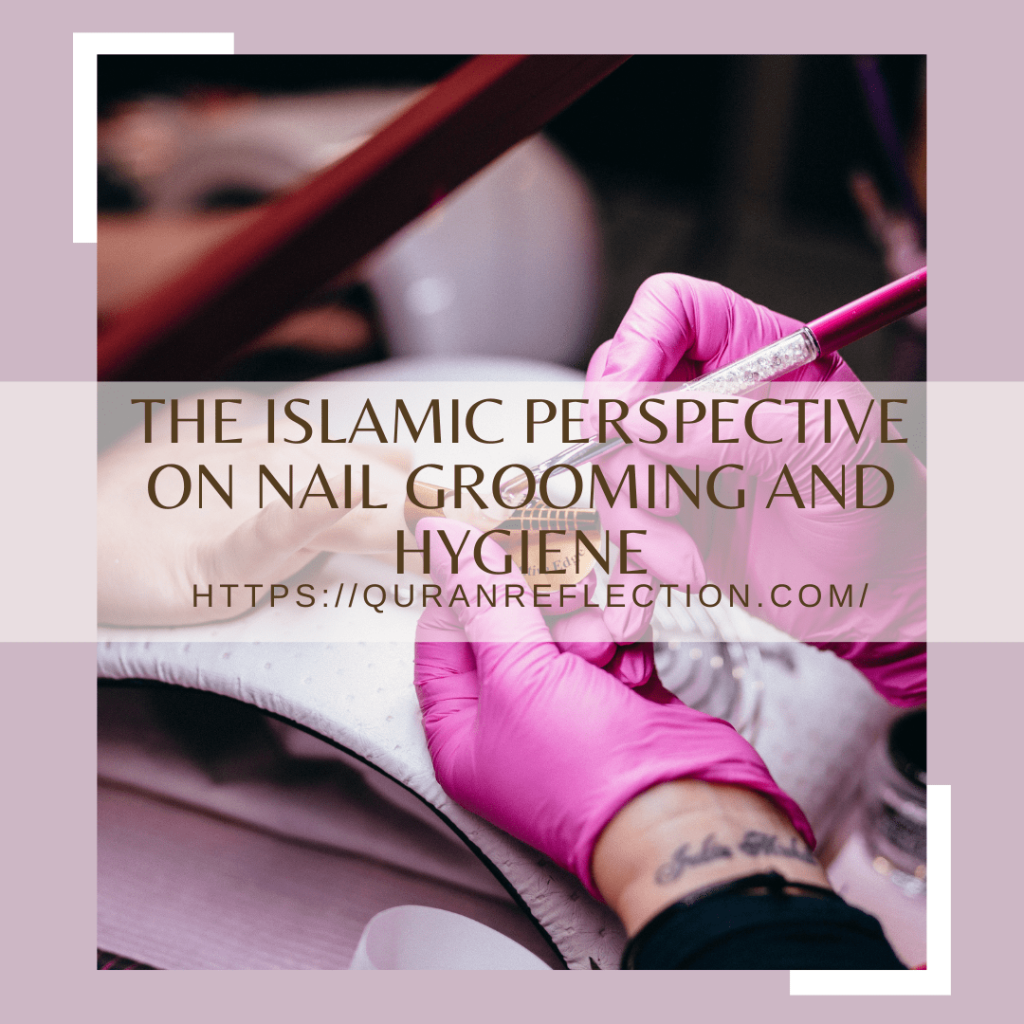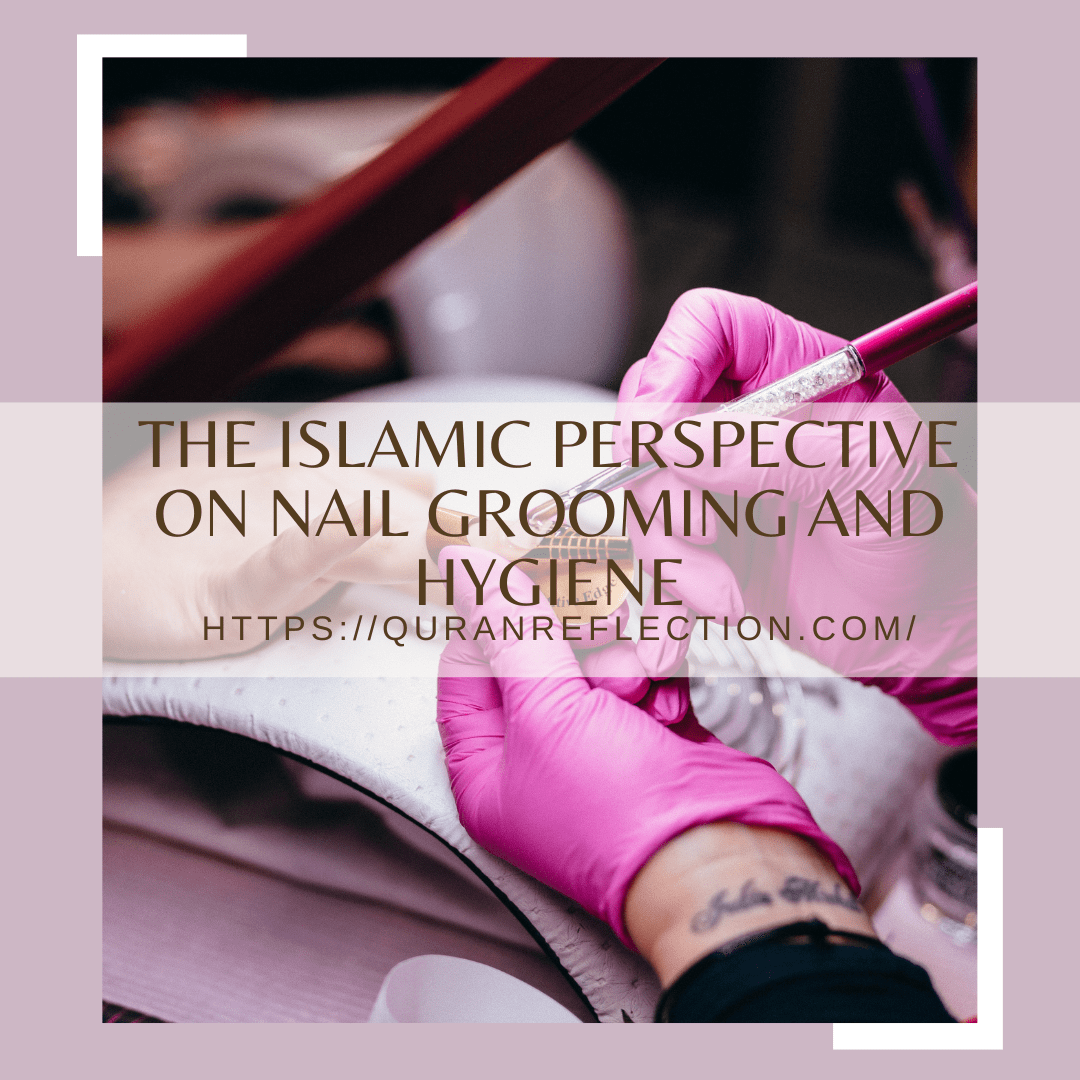The Islamic Perspective on Nail Grooming and Hygiene
Introduction:
Nail grooming and hygiene are essential aspects of personal care and maintenance in Islam. The Islamic perspective on nail grooming emphasizes cleanliness, hygiene, and modesty. This article explores the importance of nail grooming and hygiene in Islam and provides guidelines based on Quranic verses and Hadiths.
Quranic Verses:
The Quran emphasizes cleanliness and purity as essential aspects of Islamic practice. In Surah Al-Maida, verse 6, Allah says, “O you who have believed, when you rise to [perform] prayer, wash your faces and your forearms to the elbows and wipe over your heads and wash your feet to the ankles.” This verse highlights the importance of washing oneself thoroughly before prayer, which includes cleaning and trimming one’s nails.
Hadith:
The Prophet Muhammad (peace be upon him) emphasized the importance of personal hygiene and cleanliness in numerous Hadiths. He once said, “Cleanliness is half of faith.” In another Hadith, he said, “Five things are part of the fitnah (natural disposition): circumcision, trimming the mustache, clipping the nails, removing the hair from the armpits, and shaving the pubic hair.”
Guidelines for Nail Grooming and Hygiene:
- Keep your nails clean and well-groomed.
- Trim nails regularly to prevent dirt and bacteria buildup.
- Avoid growing nails too long, as this can be unhygienic and may cause harm to oneself or others.
- Use a separate nail clipper for each individual or disinfect the clipper before use.
- Do not bite nails, as this can introduce harmful bacteria into the mouth and lead to infections.
- Avoid excessive decoration or adornment of nails, as this can be seen as immodest or excessive.

Conclusion:
Nail grooming and hygiene are important aspects of personal care in Islam. Maintaining clean and well-groomed nails is not only hygienic but is also an essential part of Islamic practice. The guidelines provided based on Quranic verses and Hadiths offer a framework for adhering to these principles.
FAQ:
Q. Can I use nail polish as a Muslim?
A. There is no clear consensus on this matter, and opinions vary among Islamic scholars. Some consider it permissible, while others consider it impermissible due to its potential to interfere with the performance of ablution or prayer.
Q. Is nail art allowed in Islam?
A. Islamic guidelines emphasize modesty and avoiding excessive adornment or decoration. While nail art may not be explicitly forbidden, it is important to consider the principles of modesty and moderation in personal grooming and attire.
Q. Is it necessary to cut nails before Friday prayer? A. There is no specific requirement in Islam to cut nails before Friday prayer. However, it is recommended to clean and groom oneself before prayer, and this includes trimming nails if needed.
Q. What is the significance of nail grooming in Islam? A. Nail grooming is important in Islam as it promotes hygiene, cleanliness, and modesty. It is considered a part of fitnah, or the natural disposition, and is recommended in Islamic teachings as a way to maintain cleanliness and personal hygiene.
Q. Can men have long nails in Islam?
A. There is no specific ruling on the length of nails in Islam, but it is generally recommended to keep nails short and clean. Long nails may be considered unhygienic and can be a source of harm to oneself or others.
Q. Are there any specific guidelines for women regarding nail grooming in Islam?
A. Islamic guidelines for nail grooming apply to both men and women. However, women may be more inclined to decorate or adorn their nails, and it is important to consider the principles of modesty and avoid excessive adornment in personal grooming and attire.










